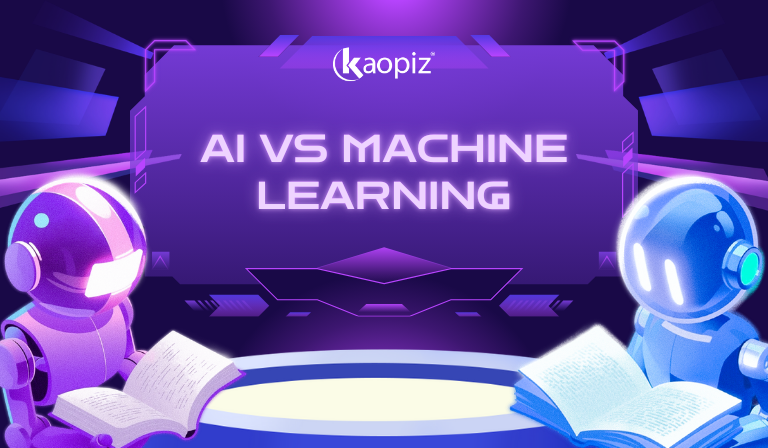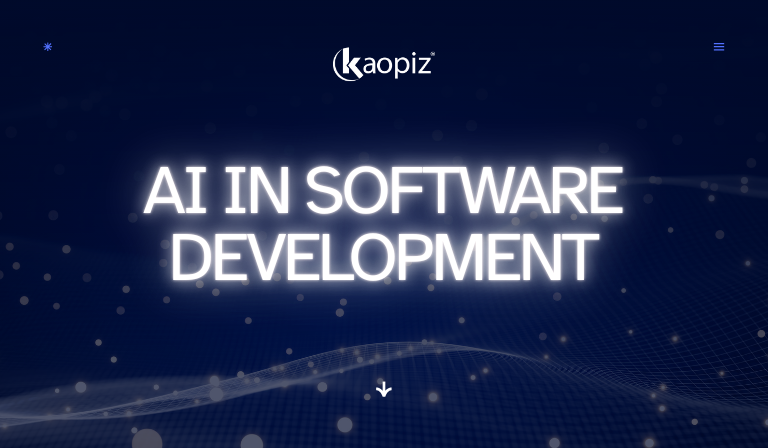Best Mobile App Development Tools for Singapore Businesses [2025 Guide]
In Singapore’s mobile-first economy, a powerful and user-friendly app is essential for staying competitive. From fintech to e-commerce, businesses rely on mobile apps to engage customers and streamline operations.
Success, however, depends on using the right mobile app development tools. With advancements in AI-powered tools, low/no-code platforms, and frameworks for iOS, Android, and cross-platform apps, choosing the right solution has never been more critical.
This guide explores the best tools for mobile app development in 2025 and how partnering with an offshore development company like Kaopiz can help Singapore businesses build smarter, faster, and more cost-effective apps.
Table of Contents
- What Are Mobile App Development Tools?
- Why Singapore Businesses Need the Best Mobile App Development Tools
- Types of Mobile App Development Tools for Singapore Businesses
- Best AI Tools for Mobile App Development in 2025
- Features to Look for in the Best Mobile App Development Tools
- Offshore Mobile Application Development Services for Singapore Companies
- How to Choose the Right Mobile App Development Tool and Partner
- Kaopiz – Trusted Mobile App Development Company in Singapore
- Future Trends in Mobile App Development Tools (2025 and Beyond)
- Conclusion
- FAQs
What Are Mobile App Development Tools?
Mobile app development tools are software platforms and frameworks that help developers design, build, test, and maintain applications efficiently. These tools provide ready-made components, libraries, and automation features to speed up development, improve code quality, and ensure a seamless user experience.

They cover every stage of the development lifecycle, including:
- Design & Prototyping – Creating UI/UX mockups and interactive prototypes.
- Coding & Frameworks – Writing and structuring app logic for iOS, Android, or cross-platform solutions.
- Testing & Debugging – Ensuring apps are bug-free, secure, and optimized for performance.
- Deployment & Maintenance – Publishing apps on app stores and managing updates.
Choosing the right toolset is crucial for businesses in Singapore looking to balance speed, cost, and quality, especially in competitive industries like fintech, e-commerce, and healthcare. With the right tools, companies can launch feature-rich apps faster and deliver better value to their users.
Why Singapore Businesses Need the Best Mobile App Development Tools
Singapore’s mobile-first market is highly competitive, with industries like fintech, e-commerce, and healthcare relying on apps to engage customers and streamline operations. To stay ahead, businesses need the best mobile app development tools.
These tools help companies:
- Launch faster with pre-built components and AI-powered automation.
- Deliver seamless user experiences across iOS, Android, and cross-platform apps.
- Reduce costs by improving efficiency or working with offshore partners.
- Scale easily, thanks to cloud-ready, flexible architectures.
- Leverage AI and emerging tech for smarter, more personalized apps.
Types of Mobile App Development Tools for Singapore Businesses
Mobile app development tools in Singapore come in various forms, each suited for different project needs and business goals. Below are the main types that Singapore companies should consider when planning their next mobile app.
Native Mobile App Development Tools
Native mobile app development tools are used to build apps specifically for a single platform, such as iOS or Android. These tools provide direct access to device hardware and operating system features, ensuring high performance, security, and seamless user experience — ideal for industries like fintech, healthcare, and logistics where reliability is critical.

- IOS Mobile App Development Tools:
- Xcode – Apple’s official IDE for building iOS apps using Swift or Objective-C.
- Swift – A fast, modern programming language optimized for iOS development.
- Android Mobile App Development Tools:
- Android Studio – Google’s official IDE, supporting Kotlin and Java.
- Kotlin – A developer-friendly language with cleaner syntax and strong community support.
Benefits of Native Tools:
- Superior performance and faster load times.
- Greater security and stability.
- Full access to device features like GPS, camera, and sensors.
While native development can be more time-consuming and costly, it’s the best choice for Singapore businesses that prioritize premium user experiences and need apps tailored to specific platforms.
Cross-Platform Mobile App Development Tools
Cross-platform mobile app development tools allow developers to build a single codebase that runs on both iOS and Android, significantly reducing time and costs. This makes them ideal for startups and SMEs in Singapore looking to launch apps quickly without maintaining separate teams for each platform.
Popular Cross-Platform Tools:
- Flutter – Google’s open-source framework known for high performance and beautiful, customizable UIs.
- React Native – Backed by Meta, it’s popular for its speed and ability to reuse web development skills.
- Xamarin – Microsoft’s framework offering seamless integration with .NET and C#.
Key Benefits:
- Faster development and lower costs with one shared codebase.
- Consistent user experience across platforms.
- Easier updates and maintenance.
While cross-platform tools may not match the full performance of native apps, they’re an excellent choice for businesses that need to launch quickly, validate ideas, or target a broad audience with limited resources.
Hybrid Mobile App Development Tools
Hybrid mobile app development tools combine elements of both web and native apps, allowing developers to build applications using web technologies like HTML, CSS, and JavaScript while still accessing some native device features. These apps run inside a native container, making them faster to develop and easier to deploy across multiple platforms.

Popular Hybrid Development Tools:
- Ionic – Known for its rich UI components and seamless integration with Angular, React, or Vue.
- Apache Cordova – Provides plugins to access native device functions like the camera or GPS.
- Framework7 – Focused on delivering native-like performance with a simple development process.
Key Benefits:
- Cost-effective development with a single codebase.
- Faster launch compared to full native development.
- Easier updates and maintenance.
Hybrid tools are ideal for Singapore businesses that need to quickly validate ideas or build apps with moderate performance needs, such as retail apps, booking systems, or internal business tools. However, for apps requiring high performance or advanced graphics, native or cross-platform development is often a better choice.
Low/No-Code Mobile Development Tools
Low-code and no-code mobile development tools empower businesses to create mobile apps without deep programming knowledge, making them ideal for startups, SMEs, or teams needing to build apps quickly and cost-effectively. These platforms use drag-and-drop interfaces, pre-built templates, and visual workflows to speed up development while reducing dependency on large developer teams.
Popular Low/No-Code Tools:
- Bubble – Great for building fully functional apps with customizable workflows.
- Adalo – Focused on mobile-first apps with intuitive UI design features.
- OutSystems – A robust low-code platform suitable for enterprise-level applications.
Key Benefits:
- Rapid development and prototyping for MVPs or internal tools.
- Reduced development costs and faster time-to-market.
- Enables non-technical team members to participate in app creation.
For Singapore businesses, these tools without coding are especially useful for creating internal systems, event apps, or pilot projects. However, they may have limitations in customization and scalability, so complex, high-performance apps are better suited for native or cross-platform development.
Best AI Tools for Mobile App Development in 2025
New AI tools are rapidly transforming how mobile apps are designed, coded, tested, and deployed. For Singapore businesses aiming for agility, quality, and innovation, leveraging AI can significantly cut development time, reduce bugs, and help deliver smarter user experiences.

Below are some of the top AI tools for mobile application development to watch in 2025 — along with their main strengths and how they can be used.
- FlutterFlow – AI-powered platform combining Flutter with visual app building and real-time previews for rapid cross-platform development.
- GitHub Copilot – An AI pair-programming assistant that helps write, debug, and optimize code faster.
- Bubble – A no-code platform with AI features for building functional apps and workflows without coding.
- Glide – Simplifies mobile app creation with drag-and-drop tools and easy data integration.
- Adalo – Visual builder for designing and deploying mobile apps quickly, ideal for MVPs.
- Appy Pie’s AI App Generator – Generates app designs and basic structures based on user prompts.
- Builder.ai – End-to-end app development platform with AI support and prebuilt modules.
- MIT App Inventor (AI-Enhanced) – Beginner-friendly visual development tool with added AI features for education and rapid prototyping.
- Firebase ML Kit – Adds machine learning capabilities like image recognition and text translation to apps.
- Cursor, Claude Code, Windsurf – AI-assisted coding tools for writing, refactoring, and maintaining clean, efficient code.
Features to Look for in the Best Mobile App Development Tools
Choosing the right mobile app development tools is key to building fast, secure, and scalable apps.

Singapore businesses should focus on these essentials:
- Cross-Platform Support – Build for iOS and Android with a single codebase to save time and cost.
- Scalability & Performance – Cloud-ready tools that handle growth and ensure smooth performance.
- Strong Security – Built-in encryption, secure APIs, and compliance with Singapore’s PDPA.
- AI & Automation – Features that automate coding, testing, and analytics to speed up development.
- Ease of Use – Intuitive interfaces and collaboration tools for seamless teamwork.
- Cost-Effectiveness – Transparent pricing and flexible plans for startups and enterprises.
By prioritizing these features, businesses can create high-performing, future-ready mobile apps that drive growth and customer engagement.
Offshore Mobile Application Development Services for Singapore Companies
Singapore has a thriving digital economy, but hiring and retaining skilled mobile app developers locally can be challenging and costly. This is why many companies turn to offshore mobile application development services to accelerate growth while keeping budgets under control.
Why Offshore Development Makes Sense
- Cost Savings: Offshore teams, especially in countries like Vietnam, offer top-quality development at a fraction of Singapore’s labor costs.
- Access to Diverse Expertise: Gain access to specialists in iOS, Android, cross-platform, AI, and cloud integration without building a large in-house team.
- Faster Time-to-Market: With a ready pool of experienced developers, projects can start quickly and scale as needed.
- Focus on Core Business: Free up internal resources to focus on strategy, marketing, and operations while experts handle technical development.
Why Choose Vietnam as an Offshore Destination
Vietnam IT outsourcing has become a preferred mobile app outsourcing hub for Singapore businesses, thanks to:
- Proximity and similar time zones for smooth collaboration.
- Highly skilled developers with experience in global projects.
- Strong English communication and cultural compatibility.
How to Choose the Right Mobile App Development Tool and Partner
Choosing the right tools and offshore mobile application development partner is key to success. Here’s what Singapore businesses should focus on:
- Define Your Goals & Requirements: Identify your app’s purpose, audience, and core features.
- Native tools for high-performance apps like banking or healthcare.
- Cross-platform tools for faster launches on iOS and Android.
- Low/no-code platforms for MVPs or internal tools.
- Evaluate Tool Features: Look for tools with cross-platform support, AI automation, strong security, and scalability to handle future growth.
- Assess Offshore Partners: Check technical expertise, past projects, and communication processes. Choose partners offering flexible models like dedicated teams or project-based work.
- Consider Total Costs: Go beyond development fees—factor in licensing, integrations, and long-term maintenance.
With the right combination of tools and trusted partners, Singapore companies can launch apps faster, reduce risks, and maximize ROI.
Kaopiz – Trusted Mobile App Development Company in Singapore
Kaopiz is the best mobile app development company in Singapore, helping businesses create innovative, scalable, and secure apps that drive growth. With a team of 600+ experienced developers, we deliver solutions tailored to the unique needs of Singapore’s dynamic market.

Why Choose Kaopiz
- Comprehensive Expertise: From iOS and Android to cross-platform development with Flutter and React Native, we cover all major technologies.
- AI-Powered Solutions: We integrate AI features such as predictive analytics, personalization, and automation to make apps smarter and more engaging.
- Flexible Engagement Models: Choose between project-based development or dedicated offshore teams, allowing you to scale quickly and cost-effectively.
- Proven Track Record: With 1,000+ projects completed and a 98% client satisfaction rate, we have built long-term relationships with global enterprises and startups.
Our Services
- Cloud integration and DevOps support for seamless deployment.
- Ongoing app maintenance and feature enhancements.
- Consulting to help businesses optimize their mobile strategies.
By partnering with Kaopiz, Singapore companies can launch world-class mobile apps faster, stay competitive, and achieve digital transformation without exceeding budgets.
Future Trends in Mobile App Development Tools (2025 and Beyond)
Mobile app development is evolving quickly, and staying ahead of trends helps Singapore businesses stay competitive. Here are the key directions shaping the future:
- AI-Driven Automation – Tools will increasingly generate code, designs, and layouts automatically from prompts or sketches, speeding up development.
- Low/No-Code Growth – Platforms will become more powerful, allowing non-developers to build complex apps faster and at lower costs.
- Smarter Apps with AI – Built-in AI features like predictive analytics, chatbots, and image recognition will become standard.
- Support for New Devices – Development tools will adapt to wearables, AR/VR, IoT, and foldable devices.
- Privacy & Security by Design – Tools will focus on data protection and compliance with regulations like Singapore’s PDPA.
- Edge Computing & 5G – Faster networks and on-device processing will enable richer, real-time user experiences.
By embracing these trends, companies can create future-ready apps that meet evolving user expectations and market demands.
Conclusion
In Singapore’s fast-moving digital economy, building a successful mobile app requires more than just a great idea — it demands the right tools and a reliable partner. From native and cross-platform frameworks to AI-powered and low/no-code solutions, choosing the right mobile app development tools can significantly impact speed, cost, and user experience.
By partnering with a trusted provider like Kaopiz, businesses can hire mobile app developers in Singapore, access top-tier talent, innovative technology, and flexible offshore models to launch high-quality apps faster and more cost-effectively.
With the right strategy and tools in place, your business can stay ahead of the competition and deliver future-ready mobile experiences that drive growth and customer loyalty.
FAQs
- What Are the Best Mobile App Development Tools for Singapore Businesses?
- Some of the top tools include Flutter and React Native for cross-platform apps, Xcode and Android Studio for native development, and Bubble or OutSystems for low/no-code solutions. The right choice depends on your app’s complexity, budget, and performance needs.
- How Do AI Tools Improve Mobile App Development?
- AI tools speed up development by automating coding, testing, and analytics. They also help create smarter apps with features like personalization, predictive analytics, and chatbots, improving both developer efficiency and user experience.
- What’s the Difference Between Native, Cross-Platform, and Hybrid Mobile App Tools?
- Native tools build apps specifically for iOS or Android, offering the best performance and user experience. Cross-platform tools like Flutter use a single codebase for multiple platforms, saving time and cost. Hybrid tools combine web and native elements, balancing speed and moderate performance.
- How Can I Build a Mobile App without Coding?
- You can use low/no-code platforms such as Bubble, Adalo, or Glide, which allow you to design apps using drag-and-drop features and pre-built templates — perfect for MVPs or internal apps.
- Why Should Singapore Businesses Consider Offshore Mobile App Development Services?
- Offshore services provide cost savings, access to specialized talent, and faster project delivery. Partnering with a trusted company like Kaopiz helps Singapore businesses build high-quality apps while focusing on strategy and growth.
Trending Post





















No Comments yet!